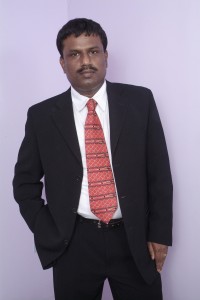Our PR interview series* will visit India today: in our latest interview with Xavier Prabhu, Founder and Chief Mentor of the Indian communication group Businesshubs, you will learn why PR is highly localized in India (as all well-executed international PR efforts should be) and why a lot of overseas companies fail here in their overall marketing and PR strategies. Additionally, you will read about the mobile revolution here and the increasing acceptance of the new communication channels in this market.
* The series is based on phone or face-to-face interviews and written input, therefore please excuse language mistakes which might reflect foreign language influences.
1. What is the latest trend (change) in PR you have identified in your region?
Xavier Prabhu: PR has been around in India for three decades now. Today it is not just one of the biggest growth markets for the entire industry on a global scale, but also an exciting market where new lessons are learnt and the boundaries stretched. It is still to get to the levels of the western world but my gut feel is that somewhere it will strike a path of its own and not just follow what the west has done.
The biggest trend we’re seeing across India is a lot of M&A activity, resulting in less independent agencies across the country. A recent example is Publicis Groupe acquiring one of the major Indian agencies. We’re also seeing companies move beyond media relations into new ideas and tools, and I am not only talking about digital or social media.
As a consequence of the extremely dynamic development of certain sectors in India and a buoyant job market where even average talents have multiple options, employer branding and internal communication are gaining traction.
The game changer within Indian economy is going to be mobile. Today we have 650 million mobile connections with 12 million being added every month. 3G is being rolled out and broadband wireless access nationwide is also a reality. A whole lot of innovation is happening driven by this and PR – as well as public relations firms – will need to adapt and learn how and where it can fit in or leverage this.
2. How does your agency react / handle / embrace this?
XP: We recently created two new brands: MindSpark is focusing on employer branding, marcomm support etc., whereas DialogueS has a focus on online marketing support and social media campaigns. MindSpark already has attained traction and will be spun off as a separate company sometime next year, and if all goes well DialogueS will also by 2012.
Additionally, we are focusing a lot on consulting as all this leads to clutter and often a client needs advice or guidance on how to make sense of this and navigate the waters. That hopefully should be a new brand by 2012 and a new company quickly thereafter.
Altogether, the direction we are heading is for us to become a branding and communication group with multiple specialized brands covering the entire spectrum.
3. Can you give a recent example from a project?
XP: For a German insurance giant’s growing IT presence in India, we successfully provided environmental branding support. This is almost like a new advertising campaign, except that it is on the walls and interiors of a facility and targeted at employees working there. There is more to come in this area with this client and also another $110 million IT services firm, where we will be breaking out an environmental branding campaign to create a sense of belonging.
Another idea we are toying with and have yet to make significant progress with is to create our own digital newspaper for all of our clients, and also to communicate the knowledge and thought leadership we have in this area.
With regards to social media, we have done a LinkedIn-specific campaign for a leading global industry association in India. We launched a new portal in a niche area to create an ongoing engagement platform targeting embedded engineers for a large US-based engineering MNC. We also conceptualized, launched and transitioned a blog for a leading player in CRM and a vote generating campaign for a leading company from another sector, who was participating in a global contest where online votes count.
4. Are there PR practices in which you think your region differs from PR in other parts of the world?
XP: India is very different as one city here could be as large as a European country. Then you have multiple local languages which vary from region to region. Not to mention media behavior, which varies from one metropolis to another. To top it all we have one of the most democratic media in the world (that is increasingly getting commercial) which is absolutely non-regulated. We see a lot of European and Japanese companies struggling with this and often they are trying to replicate here what was successful elsewhere. Korean and American companies are slightly better though they have had their blushes.
Celebrity culture is catching up in India, reality shows are the latest chart busters and there is a genre emerging called reality show stars. The money is big even by global standards, attracting overseas celebrities as well. Brands using them for PR have leaped as well but it has its own challenges as often the fees charged by these celebs are very high, and it sometimes becomes a challenge to get decent ROI even with a good media coverage. Not to mention the brand getting lost and the celebrity getting all the prominence.
PR in India is definitely getting more sophisticated, and increasingly you will find many PR firms in India operating the way PR agencies in UK or US would do, except for cultural and language differences.
5. Can you describe common mistakes foreign companies make?
XP: It is a different market and you just need to adapt to it and spend time understanding it. Too many companies come here thinking they will be successful here just because they have been successful in 55 other markets.
The market dynamics as well as behaviour and customs of Indian consumers are significantly different, which is another facet that is often not understood or even an attempt made to do so. Large parts of the Indian market are value driven; people want quality at the best price and they are used to getting what they want. Successful companies develop products specifically for the Indian market, while the laggards try to bring their existing products to India. The Indian market is also a mix of extremes. We have the poorest of the poor who don’t come into the consuming class and the richest of the rich – one of our tycoons is just moving into a $1 billion 22 storied tower he has constructed to live for him and his family. We also have a strong middle class which forms the primary target for most brands. That means, you need to have a customized strategy depending on which audience you are addressing here. There is not one India; there are multiple Indias within the boundaries of our country.
Additionally, urban India which most visitors see is not the real India. Meeting well-educated Indians dressed in western style in five star hotels in the major cities is just the surface – this is not the “real” India. Often many of them are kind of “alien” to Indians as well, and fail to understand what this vast, complex country and market is all about.
Finally, with Indian companies now becoming global leaders, investment flowing outward as much as inward and a lot of Indian executives making it big globally, it is a level playing field where we look at a company coming in to give and take. It’s simply not to be one sided. I recall one of the European country’s ambassadors in India telling me candidly that gone are the days when their executives used to fly to India and talk arrogantly since they brought in investment. Today, they are being coached to change their approach as it is now the other way round: now it’s their companies that need the Indian market or international investment.
6. What do clients from other markets need to keep in mind when they plan to do PR in your region?
XP: Come with an open mind and be willing to be out of the box. The chaos of India has only led to millions of entrepreneurs blooming, seeing it as an opportunity and thriving in it to create one of the most dynamic economies of the world today. So don’t be deterred by it.
It is not a place where you can take everything for granted but it is slowly getting there. But it is a market that is changing the rules head on and one of the most dynamic markets in the world. Being born and living here, it is difficult to us to fathom the change that is happening all around us at such fast pace. Just imagine the plight of those from outside.
It is fun, take it in your stride and enjoy the ride. You will never regret it nor will your company or brand.
_____________________________________________________


